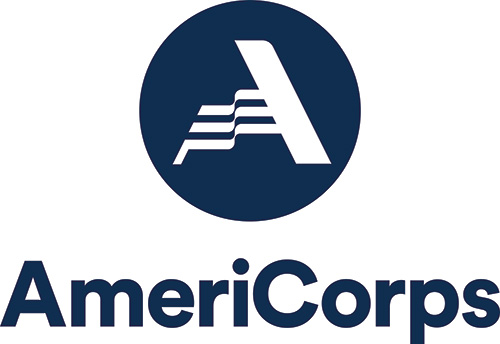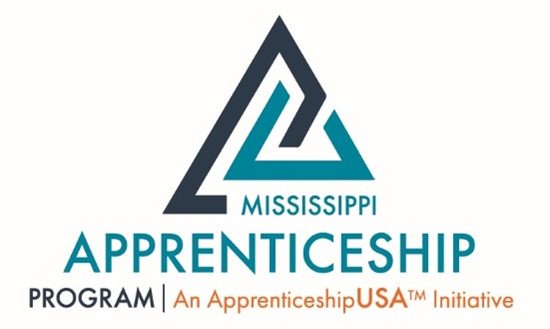AmeriCorps Mississippi
The domestic Peace Corps engages more than 50,000 Americans in intensive, results-driven volunteer service each year. Students who join AmeriCorps as members can earn education awards of varying amounts depending on the type and length of service.
Apprenticeships
Do you want an opportunity to gain an in-demand skill set while being paid to do so?
Are you seeking to pursue higher education while advancing your career?
If so, the Mississippi Apprenticeship Program may be an excellent fit for you! Registered Apprenticeship is an earn-and-learn pathway that combines on-the-job training with related technical instruction to create a program that benefits both the employer and their apprentice.
College Savings
There are many ways to save for college. You can set aside money every week, open a savings account at your bank, or put money in a popular 529 Plan. A 529 Plan is an education savings plan operated by a state or educational institution to help families save for future college costs. They are called 529 plans because they were authorized by section 529 of the IRS code.
Mississippi offers two savings plans, administered by the State Treasury Department: MPACT and MACS.

MPACT allows Mississippi residents to pre-pay for college tuition and mandatory fees (thus locking in the rates) at Mississippi public colleges and universities or for private or out-of-state colleges based on Mississippi’s average tuition rates.

MACS is an investment program that enables families to save for tuition, books, room and board, required supplies, and graduate school expenses. MACS funds may be used at any accredited college or university anywhere in the U.S.
Community College Tuition Guarantee Programs
The Community College Tuition Guarantee Program is coordinated with federal aid, state aid, and scholarship funds to ensure that particular county residents’ tuition will be paid at participating community colleges for four consecutive, regular semesters. Your participation in this program is contingent upon your compliance with a few requirements and the availability of program funds.
Community College Tuition Guarantee Programs are typically sponsored by a city or county chamber of commerce or other community organization. The programs usually require students to apply for federal aid, state aid, and institutional aid first. The guarantee program then pays any remaining balance of tuition for students who qualify.
Interested students should contact their community college for more information.
Military
The military offers many educational benefits that service members can take advantage of during or after service. From financial aid and college funds to programs that convert military training into college credit, there have never been more ways for service members to further their education.
TUITION ASSISTANCE
The military’s Tuition Assistance Program provides service members the opportunity to enroll in courses at accredited colleges, universities, junior colleges, and vocational-technical schools. Each service offers unique programs to help with tuition for a range of educational goals, from professional certifications to graduate degrees. To qualify, there are usually conditional requirements—such as a minimum time remaining on your service contract and a cap on credit hours (or dollars) per year. Some programs, such as the Coast Guard’s College Student Pre-Commissioning Initiative, also require that you attend a school from a designated list.
Tuition Assistance covers up to 100 percent of the tuition or expenses, up to a maximum of $250 per credit and a personal maximum of $4,500 per fiscal year per student. This program is the same for full-time-duty members in all military services. Selected Reserve and National Guard units also offer Tuition Assistance Programs, though the benefits may differ from those of the active-duty program.
THE POST-9/11 GI BILL
The Post-9/11 GI Bill became effective on Aug. 1, 2009, and veterans who have served after Sept. 10, 2001, with at least 90 days of continuous service are eligible. The Post-9/11 GI Bill also gives Reserve and Guard members who have been activated for more than 90 days since 9/11 access to the same benefits as their active-duty counterparts.
As of Aug. 1, 2011, the Post-9/11 GI Bill will now pay all public school in-state tuition and fees. The full benefit amount an individual can receive is calculated from these numbers:
- Tuition and fees payment (not to exceed the highest public in-state undergraduate tuition and fees in each state)
- Living stipend (equivalent to basic housing allowance in that ZIP code for an E-5 with dependents)
- Allowance for books and supplies ($1,000 per year)
The actual benefit amount will vary based on an individual’s total length of service. For example, those who have served at least 36 months or 30 continuous days before discharge due to a service-connected disability are eligible for the maximum tuition and fees, a monthly housing stipend, and an annual stipend for books and supplies. Those who have served at least 90 days, but less than six months, receive 40 percent of the maximum benefit. These benefits are payable for up to 15 years following a member’s honorable discharge or retirement from service.
Another aspect of the Post-9/11 GI Bill is the Yellow Ribbon Program. Colleges and universities that participate in this program contribute additional funds toward educational costs that exceed the maximums allowed by the Post-9/11 GI Bill. Institutions may set the amount they wish to contribute, which the Department of Veterans Affairs will match. This can be very beneficial for students at private colleges and universities, as well as those in graduate programs or those with out-of-state status.
The Post-9/11 GI Bill also offers service members the ability to share educational benefits with family members. In exchange for an additional service commitment, a service member may be able to transfer all or part of their earned benefits to spouses and children (including stepchildren). This marks a first for the GI Bill, opening up new opportunities for service members and their families.
For example, to find maximum allowances by state, visit the Veterans Affairs GI Bill site or speak with a recruiter.
COLLEGE FUND PROGRAMS
College Fund Programs (also known as the GI Bill “kicker”) provide additional funds that can be added to the Post-9/11 GI Bill. Except for the Navy and Air Force, each service branch has a College Fund Program; however, the incentives and amounts received vary by branch. College Fund Programs are offered to service members when they first join the military. Two mandatory qualifications are that you must have a high school diploma and you must be enrolled in the Post-9/11 GI Bill. Depending on your service, test scores, and occupation, there may also be additional requirements. Contact a recruiter to determine your eligibility and request an application.
LOAN REPAYMENT PROGRAMS
The Army and Navy offer loan repayment programs that help enlisted personnel pay off college loans accrued before service. While each program has unique processes and requirements, they’re all enlistment incentives designed to help recent college graduates manage education debt.Army
In the full-time-duty Army, soldiers can qualify to have their loans repaid by the military at a rate of one-third of the loan for each year of full-time duty served (with a maximum loan repayment of $65,000). The Army even helps soldiers pay off student loans they’ve taken out, provided they attended schools for which Perkins, Stafford, or other Department of Education guaranteed student loans were approved.


